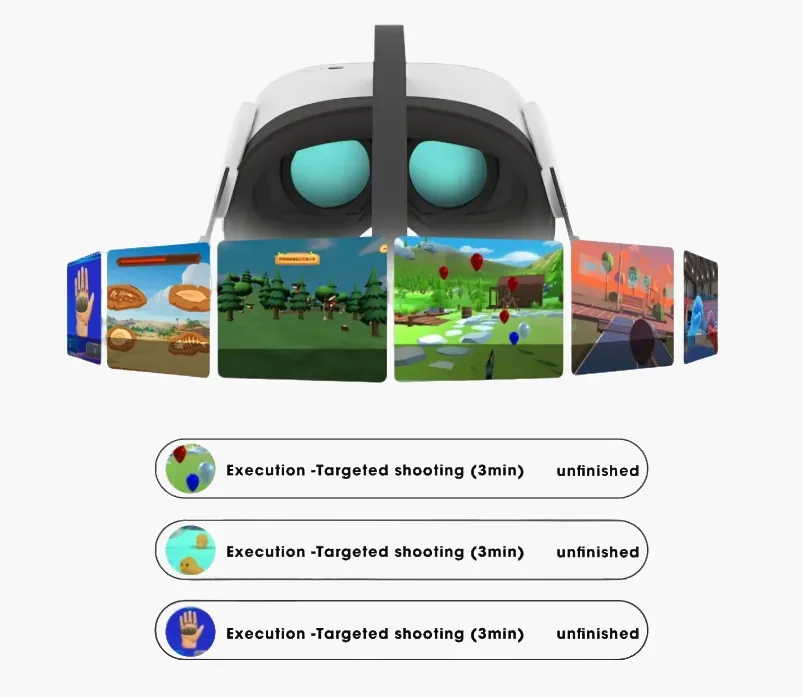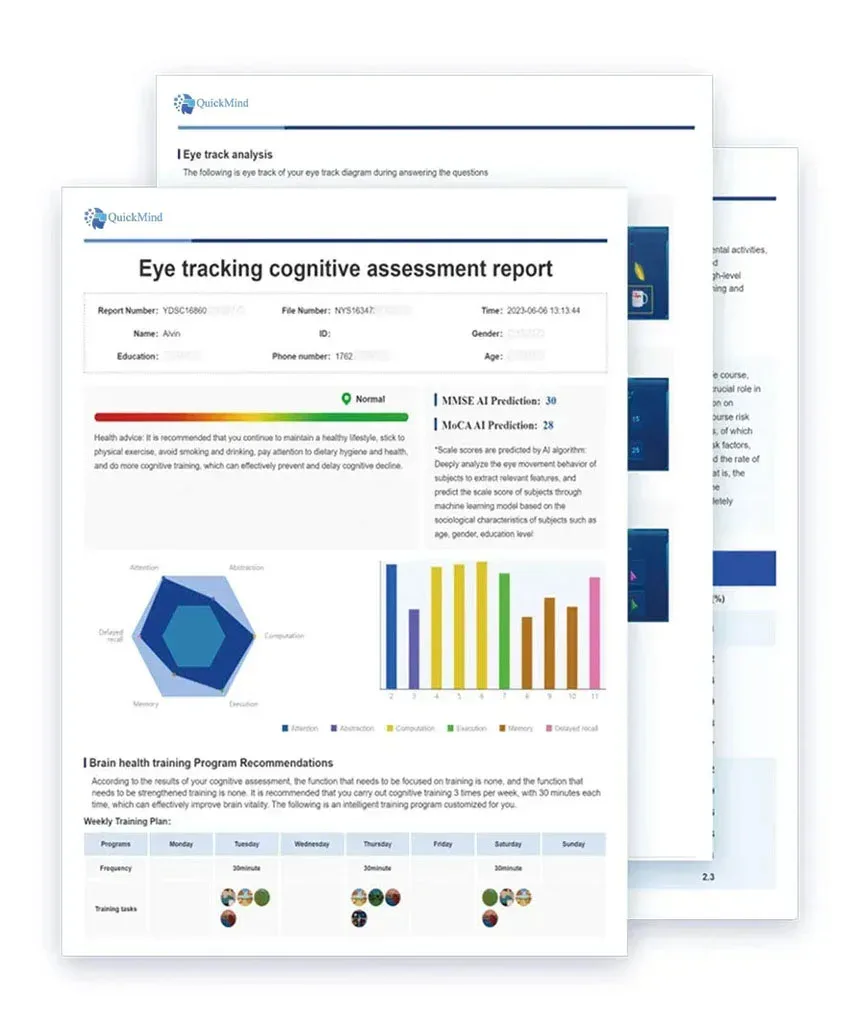
Expanding research suggests that virtual simulation intervention can dramatically improve the welfare of subjects managing memory loss conditions. By relocating them to calming locations, VR offers a original avenue for brain engagement, mood control, and social interaction. Multiple research works have established that VR therapy can lower agitation, nervousness, and depression in dementia subjects while also improving their retention, attention, and social skills.
- VR allows users with dementia to rehash precious moments through hands-on recreations.
- Besides, it can allocate a risk-free and nurturing space for community involvement, cultivating a notion of union and belonging.
- Clinicians assert that VR therapy has the chance to overhaul dementia therapy by yielding new and innovative methods to tackle the challenging obstacles faced by patients struggling against this ailment.
Tech-Driven Cognitive Therapies for Alzheimer's Patients
Progressive computerized treatments are demonstrating potential in the realm of mental capacity building for users struggling with Alzheimer's ailment. These software leverage automated tools to boost brain processing and supposedly reduce the aggravation of the syndrome. Interactive drills, personalized support, and thought training are some cases of approaches being researched in this dynamic sphere. While experiments are underway, digital therapeutics afford a supplementary roadway for enhancing the quality of those affected by Alzheimer's ailment.Virtual Scenario Navigation in Alzheimer's Treatment
For persons struggling with Alzheimer's dementia, the persistent decline of recall and thinking skills can considerably compromise their aptitude to socialize with the community. This debilitating state often triggers in remoteness, displeasure, and a limited self-awareness. Newest innovations in virtual reality technology deliver a groundbreaking prospect to resolve these challenges by producing immersive experiences that can enhance the brain and restore cognitive function.
Digital reality environments formed specifically for Alzheimer's clients can transport them in acquainted settings, such as their first house or a favorite park, triggering positive memories and mitigating anxiety. Through interactive exercises, these virtual domains can also challenge cognitive abilities like recollection, keen observation, and critical thinking.
The possible gains of virtual reality in Alzheimer's support are enormous. Early investigations have established encouraging results, with participants exhibiting improvements in cognitive power, mood, and overall quality of life. As this innovation advances, it holds the key to remodeling the way we approach Alzheimer's disease, due a new pathway for intervention and reinforcement.
Virtual Memory Therapy for Alzheimer's Clients
Reminiscence therapy is a broadly accepted technique used to strengthen cognitive function and mental state in individuals with Alzheimer's disease. This customary form of therapy involves stimulating patients to recollect past experiences, often through dialogue. However, a cutting-edge approach is emerging: VR-mediated reminiscence therapy.
This immersive tool utilizes virtual reality headsets to transport patients in convincing environments that recall memories from their past. By going through these artificial surroundings, individuals with Alzheimer's can participate with their past in a powerful way.
The Role of VR in Enhancing Dementia Patient Recall and Cognition
Virtual reality (VR) is emerging as a novel method in the fight against dementia, supplying groundbreaking ways to energize memory and cognition. By crafting immersive environments, VR can enable individuals with dementia revisit memories, join in meaningful activities, and improve cognitive competencies. Studies have demonstrated that VR interventions can generate noticeable improvements in memory recall, attention, and dimensional awareness. Moreover, VR provides a controlled and favorable space for individuals with dementia to interact, reducing feelings of isolation and apprehension.
- Moreover, VR can be modified to individual needs and preferences, allowing increased levels of communication.
- Despite the capabilities of VR, extended research is needed to fully understand its long-term benefits in dementia care.
Rekindling Memories, Rebuilding Connections: VR's Impact on Social Engagement in Alzheimer's Disease
Augmented immersive environments is emerging as a state-of-the-art mechanism in the discipline of Alzheimer's disease. By creating engaging and communicative settings, VR has the potential to reignite memories, develop social interaction, and advance the overall quality of life for users experiencing Alzheimer's. Specifically a major powerful aspects of VR is its ability to convey users to well-known locations and experiences from their past. Whether it's a jaunt inside a childhood home or a illustration of a beloved holiday, these virtual explorations can evoke happy memories and consolidate cognitive faculties. Furthermore, VR can aid social interaction by connecting individuals with others who share similar preferences. This can be particularly useful for people with Alzheimer's who may experience challenges with traditional social involvement. By hosting a safe and stimulating virtual space, VR can soothe feelings of isolation and loneliness, which are common among persons managing Alzheimer's. Overall, VR holds immense opportunity for transforming the lives of subjects with Alzheimer's by reviving memories, rebuilding connections, and refining their quality of life. digital therapy As technology progresses to evolve, we can expect even more novel applications of VR in the field of dementia care.Utilizing Cognitive Training: Harnessing VR for Alzheimer's Therapy
VR technology is rapidly emerging as a cutting-edge tool in the realm of cognitive training, particularly for patients suffering from Alzheimer's disease. By immersing patients in interactive and engaging virtual environments, VR-based interventions can boost cognitive functions such as memory, attention, and problem-solving. These games habitually incorporate elements of storytelling, exploration, and social interaction, making the training process exceptionally satisfying. Studies have shown that VR-based cognitive training can lead to measurable improvements in cognitive performance, conceivably delaying the progression of Alzheimer's symptoms. Moreover, VR provides a safe and controlled environment for patients to practice new skills and improve their confidence.
- Play-based techniques in VR training can make it deeply absorbing and pleasant for users with cognitive difficulties.
- VR simulations can offer believable scenarios that challenge and stimulate cognitive functions.
- Personalized VR experiences can cater to distinct expectations and habits.
Virtual Reality: New Horizons in Dementia Assistance
Enthralling virtual reality offer a novel and encouraging avenue for clients facing memory loss. These systems can simulate familiar environments, allowing those affected by cognitive decline to experience cherished memories and support a sense of consolation. By combating the impacts of dementia, VR spaces have the ability to augment quality of life for both persons and their supporters.
- Investigations indicate that VR strategies can favorably impact cognitive function, psychological well-being, and even movement abilities in individuals with dementia.
- Moreover, VR enables a safe and protected environment for investigation, reducing the risk of injury.
- In addition, VR can enhance social interactions by allowing individuals with dementia to socialize in artificial activities with others.
Employing VR to Detect and Treat Alzheimer's Early
Alzheimer's ailment manifests a elaborate obstacle, often continuing unnoticed in its early stages. Still, virtual reality (VR) is appearing as a revolutionary tool for primary detection. Through immersive virtual worlds, VR can measure cognitive competence in ways that traditional methods are inadequate to. This potential allows for speedy involvement strategies, potentially impeding disease progression and upgrading the quality of life for clients with Alzheimer's.
- VR platforms enable safe and monitored examination of memory, attention, and navigation abilities.
- Bespoke VR applications facilitate interactive mental activity for patients.
- Computer-generated spaces provide social conditions for Alzheimer's clients to bond and mingle.
Facilitating Dementia Communication and Interaction Through VR
{In the realm of dementia care, innovative technologies are emerging to strengthen the lives of persons with neurodegenerative disorders. Virtual reality (VR) is one such resource that holds immense prospect for strengthening interaction and communication for dementia sufferers via VR. By constructing engaging artificial realities, VR can energize cognitive function, reduce behavioral issues, and ultimately improve the overall well-being of subjects managing dementia.
VR experiences optimized for dementia therapy can range from retrospection therapy sessions that guide clients through remembered environments, to interactive games that promote social interaction and cognitive challenge. Furthermore, VR has the capacity to connect dementia patients with family and friends, regardless of physical space, fostering a sense of inclusion.
- VR can empower in reducing agitation and anxiety by providing a calming and absorbing environment.
- Evaluations have shown that VR interventions can lead to improvements in cognitive function, mood, and social interaction in subjects coping with dementia.
- As technology evolves in progress, we can expect even more innovative and productive
